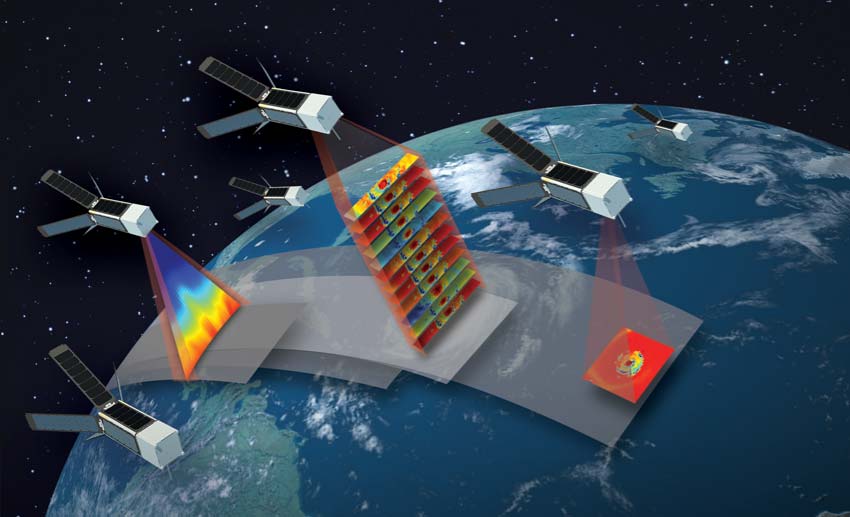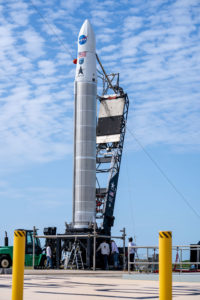
A NASA Weather Satellite Launch yesterday from the Florida Spacecoast ended with disaster, with the rocket responsible for deploying the satellites into orbit suffering from an unknown glitch after reaching space.
Known as the TROPICS mission, short for Time-Resolved Observation of Precipitation structure and storm Intensity with a Constellation of Smallsats, two small cubesats of the 6-smallsat constellation were to be launched yesterday by Astra. Astra is an Alameda, California-based company that has had a mix of success and failure with its recent attempts to deploy missions into space.
Unfortunately for NASA, Astra suffered from yet another failure when its Rocket 3.3, also known as LV0010, failed to properly insert the cubesats into their orbit.

Chris Kemp, Founder, Chairman, and CEO of Astra, wrote, “We regret not being able to deliver the first two TROPICS satellites. Nothing is more important to our team than the trust of our customers and the successful delivery of the remaining TROPICS satellites. We will share more when we have fully reviewed data.”
Astra added, “We had a nominal first stage flight. The upper stage shut down early and we did not deliver the payloads to orbit. We have shared our regrets with NASA and the payload team.
The FAA will investigate what went wrong, pausing additional launch attempts for the rest of the TROPICS series. As a FAA licensed mission, the FAA and Astra will lead the investigation to understand what happened during the TROPICS-1 launch. NASA will lend any expertise needed but would expect to pause the launch effort with Astra while an investigation is being conducted to ensure we move forward when ready.
A NASA spokesperson said, “While we are disappointed in the loss of the two TROPICS CubeSats, the mission is part of NASA’s Earth venture program, which provides opportunities for lower-cost, higher risk missions. Despite a loss of the first two of six satellites, the TROPICS constellation will still meet its science objectives with the four remaining CubeSats distributed in two orbits. With four satellites, TROPICS will still provide improved time-resolved observations of tropical cyclones compared to traditional observing methods.”
NASA’s Launch Services Program, which is managing the launch service for the mission, continues to work with emerging launch providers to deliver low-cost science missions into orbit with contracts that align with commercial practices, using less NASA oversight to achieve lower launch costs. Small satellites and Class D payloads tolerate relatively high risk and serve as an ideal platform for technical and architecture innovation, contributing to NASA’s science research and technology development.
NASA has said they want to continue working with these newer, lower-cost, higher-risk launch companies to stimulate innovation within the space industry. “We recognize the risks inherent in a new launch provider and will lend our assistance as needed,” added NASA.
Astra has had a string of bad luck with their rockets. In March 2020, a launch pad fire destroyed Astra’s first rocket. On September 11,2020, Astra attempted another orbital rocket launch; after clearing the launchpad, it tumbled and fell back to Earth, exploding on impact. On December 15, 2020, a rocket launch from Kodiak Island, Alaska successfully lifted off from its launch pad, but failed to reach its intended orbit. On August 28, 2021, another Rocket 3.3 vehicle failed to reach orbit, ultimately crashing into the ocean downrange.
But not all Astra missions have been disasters.
On November 20, 2021, another Rocket 3.3 launched by Astra successfully reached orbit after launching from the Pacific Spaceport Complex in Alaska, carrying a demonstration payload for the U.S. Space Force. By achieving an orbital launch in just five years and one month after Astra was founded, Astra became the fastest company to reach orbit with a privately developed liquid-fueled rocket over a year less than SpaceX at six years and four months.
On March 15, 2022, Astra has another successful launch, delivering the NearSpace S4 Crossover Satellite into space.